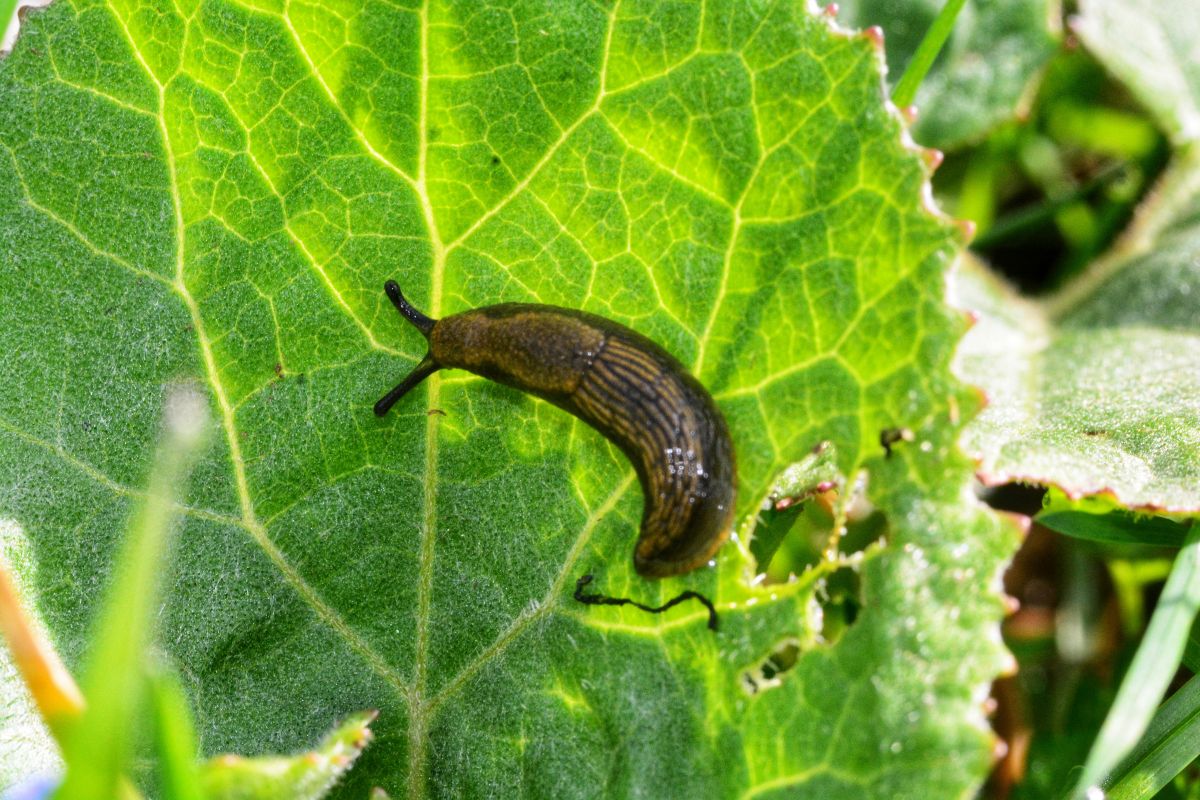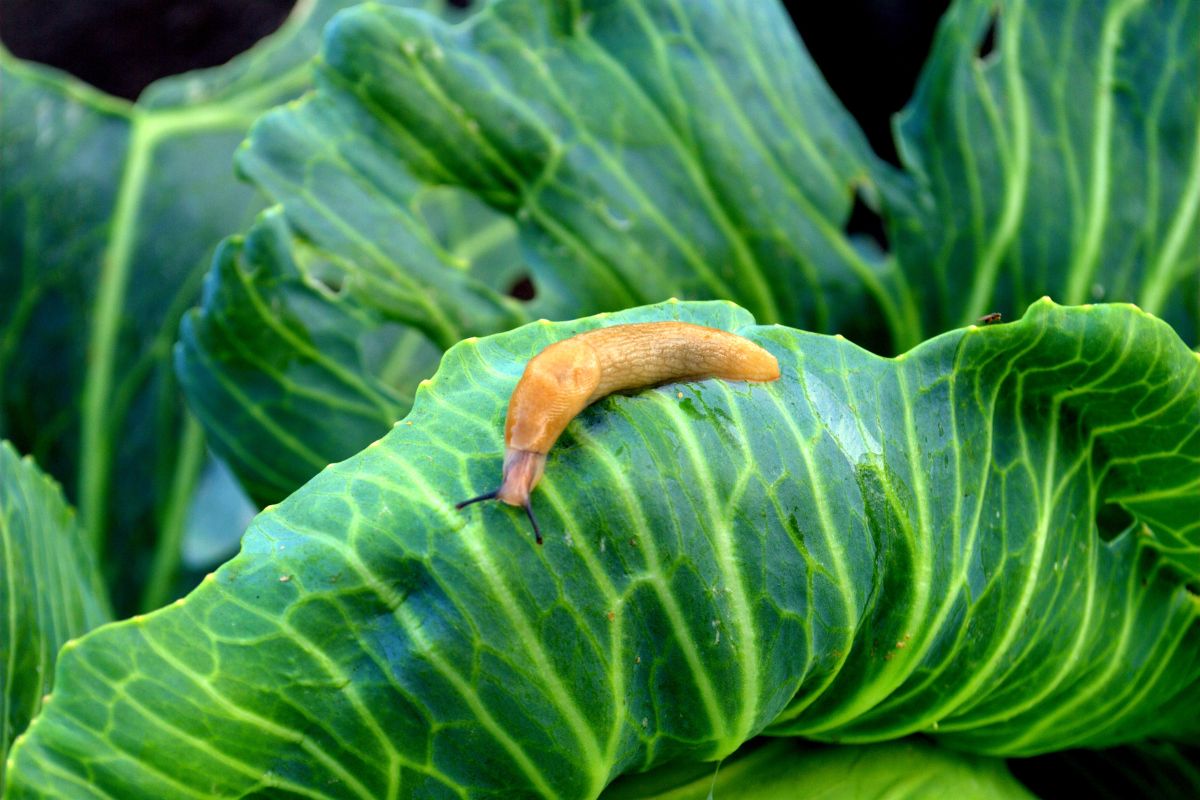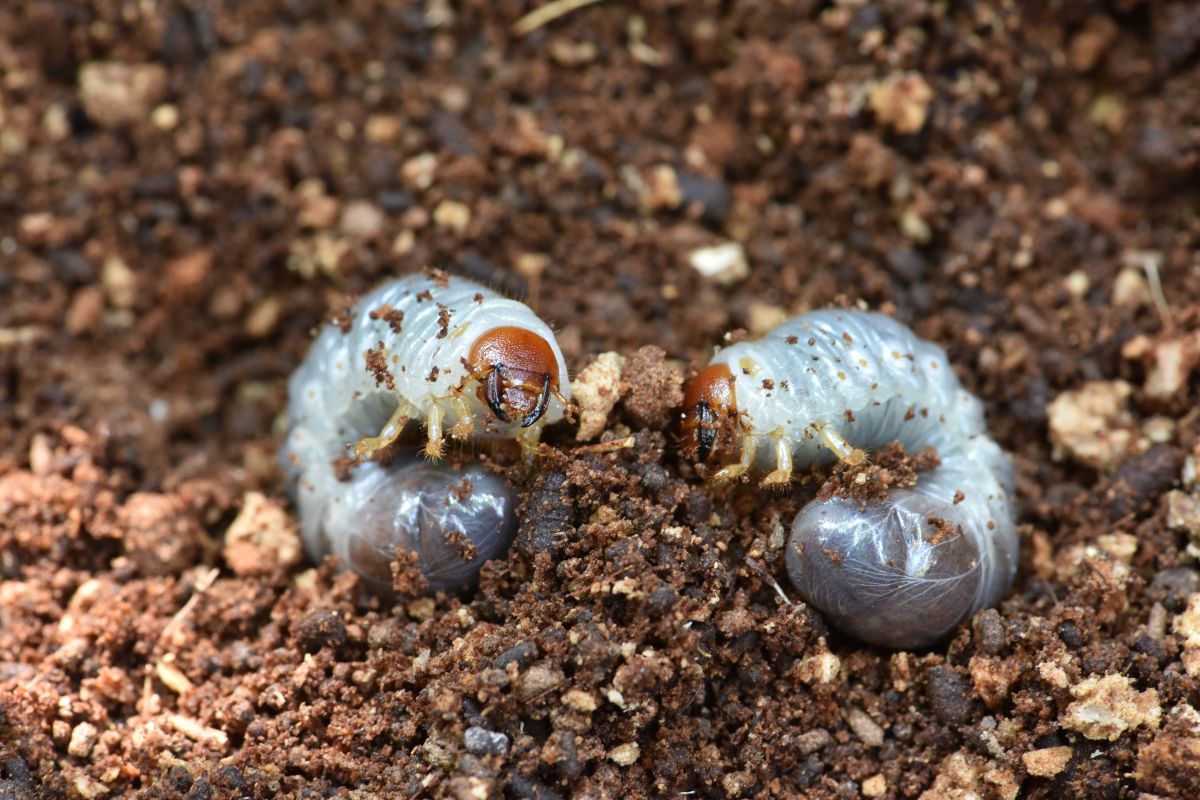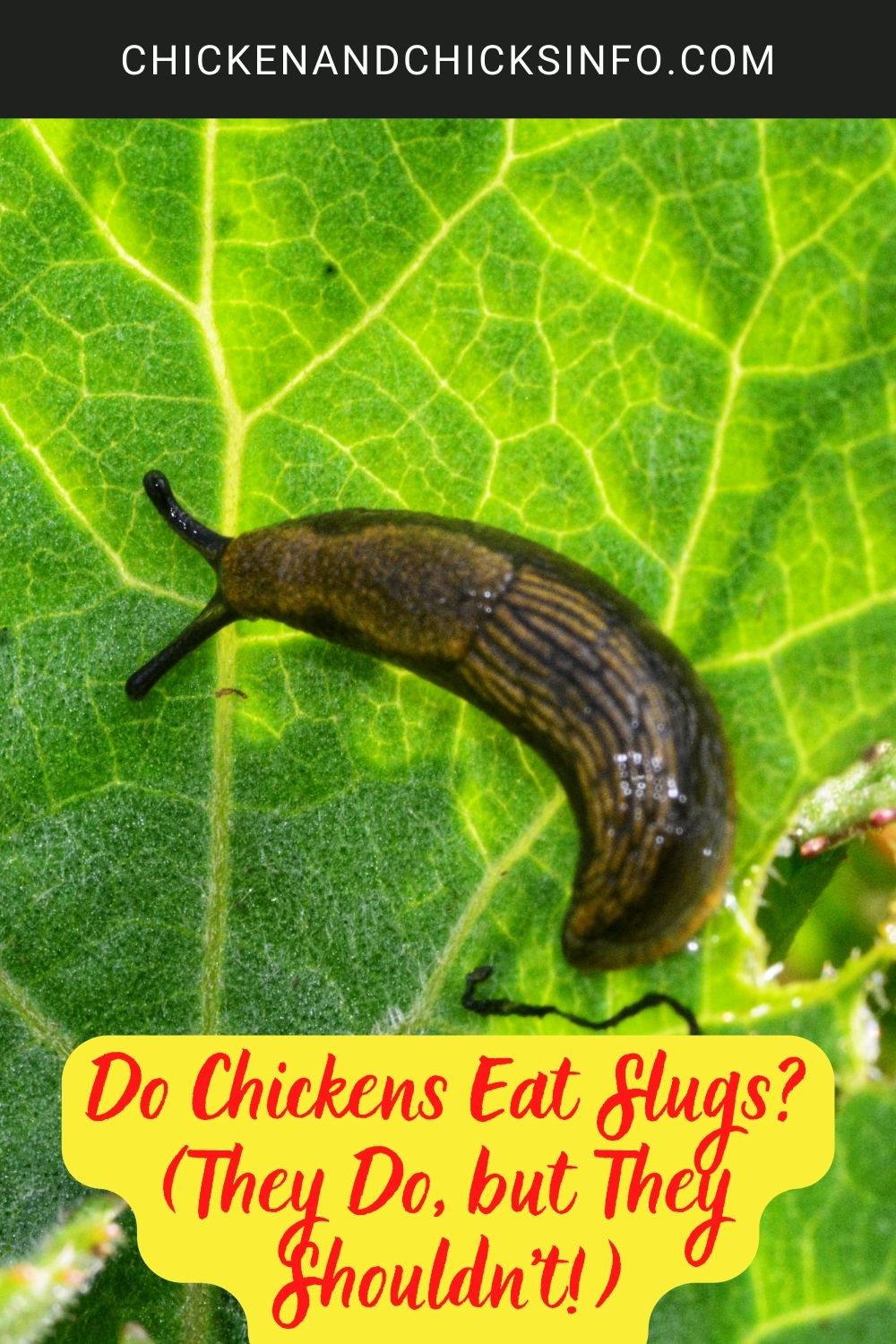
Chickens do and will eat slugs without a second thought. In fact, there are very few bugs or insects chickens will pass on. There are some risks to be aware of with slugs, however, not to mention it’s pretty gross!
Jump to:
Is It OK for Chickens To Eat Slugs?
You don’t need to be too concerned if your chickens are eating a slug now and then. There are some risks involved though, as I’ll explain in more detail later. But stories of slugs passing parasites onto chickens are few and far between.
For this reason, personally I tend to try and discourage my chickens from eating slugs. In fact, I try to discourage slugs from being in my yard altogether as they damage my plants too.
I know how hard it is to completely rid a yard of slugs. They seem to just appear from nowhere when the conditions are right, don’t they?
I use traps as I don’t want slugs eating poison pellets then being gobbled up by my hens. Some mornings there are slimy trails going all around the traps and hardly any in them! But overall, I have the situation under control.
Risks of Worms and Other Parasites from Slugs
Slugs are known to be hosts to a number of potentially harmful parasites. There are two in particular that can be very harmful to chickens; rat lungworm and gapeworm.
Gapeworm, in particular, can be devastating to a hen, and even a flock of chickens if it spreads.
Gapeworms are nasty little parasites that live in chickens’ windpipes. They cause respiratory issues, and if left untreated will eventually kill the chicken.
They are thick, long red worms, and can grow to several centimeters in length. Symptoms include having difficulty breathing, lethargic behavior, or obvious signs of discomfort.
You may even hear what’s called a “tracheal rattle” if you listen closely to their breathing.
Awareness of rat lungworm really came to the forefront in 2010 when a man ate a slug as a dare, and contracted this parasitic worm. The worm found its way to his brain and ultimately caused brain damage.
As the name suggests, the rat lungworm is commonly found in rats. Rats pass the worm larvae in their poop, then slugs, snails, and some other insects eat it and potentially host the parasite.
If a chicken eats an infected slug - or some rat poop - they will contract this parasite.
Related - Concerned about parasites? There are some herbs with powerful anti-parasitic properties.
Best Careful When Using Slug Pellets and Poisons

Now you know about the risks associated with eating slugs, you probably want to get rid of them. Right?
The issue is, one of the most effective ways of killing slugs is by using slug pellets. I’ve used slug pellets before, and they get the job done.
The problem is, you don’t want your chickens eating slug pellets or slugs that have ingested poison but not yet died.
The active ingredient in slug pellets that kill slugs is called metaldehyde. It’s a powerful pesticide, which combined with some other ingredients that attract slugs makes it impossible for them to resist eating them.
I’ve researched the dangers of chickens eating slug pellets or poisoned slugs and came across mixed opinions.
Some people think it’ll take a large amount to poison a chicken. While others - and I’m with this school of thought - think it’s just best to avoid letting chickens eat any kind of poison!
How To Safely Kill or Trap Slugs Without Harming Chickens?
I suggest using an alternative method from poisons that is 100% safe for your chickens. There are some “pet-safe” pellets on the market, but I haven’t tried these.
What I currently use are inclosed traps that slugs can get into, but my chickens can’t.
I use these TruePower slug and snail traps available on Amazon:

All you have to do is sit them somewhere slugs will pass by, pour a little beer inside (who would have thought it, slugs love a sip of beer!) and you’ll find slugs inside in a drunken stupor.
Related - Can chickens drink beer? (they actually do enjoy a beer!)
Some of the Other Backyard Bugs That Chickens Can Eat

Depending on where you live, your garden is likely home to all kinds of insects, bugs, and lizards - all of which make tasty snacks for chickens for the most part.
There are very few creatures you need to be concerned about. For the most part, live prey provides excellent nutrition for chickens and helps encourage their natural foraging behavior.
Here are some of the common bugs that make tasty backyard snacks for chickens:
- Worms
- Centipedes
- Spiders
- Ants (fire ants, soldier ants, etc)
- Grasshoppers and crickets
- Beetles
- Snails
- Termites
- Grubs
Whatever they're eating, generally speaking it’s a win-win. Raising chickens in the backyard means you get some free pest control services, and your hens can supplement their diet.
In Summary
Chickens can and will eat slugs - along with most insects and bugs that move. However, knowing the potential risks, I take some steps to try and get rid of slugs before my hens can eat them.
Generally speaking, bugs and other live creatures are great for chickens. Also, when watching chickens roam roaming free-range, there are few things as fun as watching then find and chase little bugs and critters around!.





